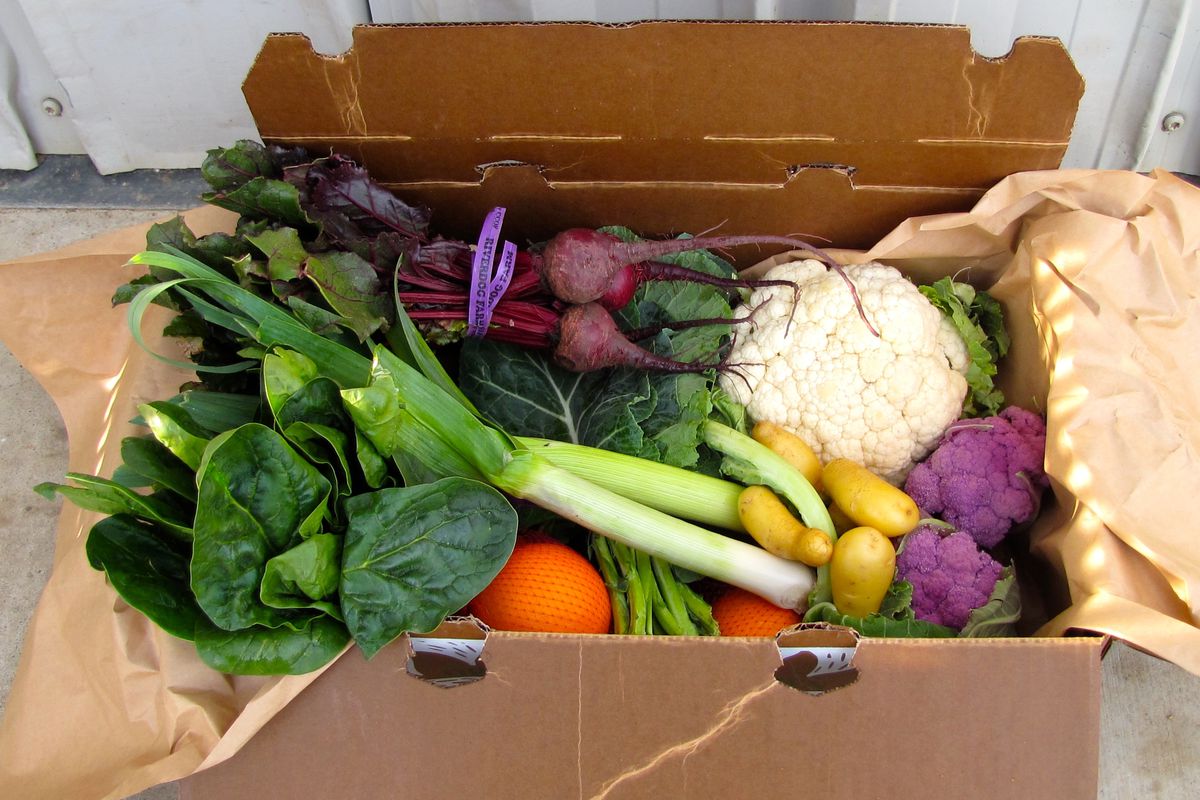In Okanogan County, the box or bag of food pantry clients receive each week reflects some thought and planning about the nutritional value of the foods that go into the box. Can we do better? Yes.
Working for a New Nutrition Policy
Recently, Okanogan County Community Action Council teamed up with the Washington Food Coalition (WFC) and the American Heart Association to write and adopt a nutrition policy to guide purchases, donation procurement and distribution to nine county food pantries that support the food needs of 11,000 individuals each month. The policy utilizes the Healthy Eating Research Nutrition Guidelines (HER) as a tool to guide their distribution of nutritious, culturally relevant foods that support positive and healthy outcomes by sourcing from the local food ecosystem and investing back in the local economy. Although we are not 100% there yet, we are making strides every day to do better, through educating food pantries and clients, purchasing fresh produce from local farms directly and thoroughly researching new food distributors as we begin to partner with them.

The policy was adopted in December 2022 and will provide internal guidance toward purchasing local, sustainable foods like fresh fruits and vegetables, whole grains and low-sodium options from BIPOC (Black, Indigenous, People of Color), female or veteran owned farms and businesses when possible. The policy also directs OCCAC to avoid purchasing items that detract from good heart health, such as sugar-sweetened beverages and candy. To ensure the foods we are distributing meet the needs of our community, OCCAC regularly solicits feedback to identify foods that align with community requests and help address pervasive cardiovascular risk factors within rural communities by referencing the HER guidelines.
Okanogan County Community Action and The American Heart Association
Community Action and The American Heart Association connected through the Washington Food Coalition’s (WFC) Registered Dietician nutrition consultant who works through shared goals to create healthier, more equitable food environments as reflected in WFC’s Health Centered Food Banking Project. The Washington Food Coalition and The American Heart Association provided stipend funds to compensate OCCAC’s time as well as translated nutrition education materials in Spanish and English.
The American Heart Association is committed to addressing rural health inequities and has issued a call to action to improve the health of rural populations by addressing the social determinants of health to reduce urban-rural disparities, investing in research, supporting policy reform and developing rural-specific, community-guided solutions.
Beyond tackling food access challenges, Okanogan County Community Action Council offers a growing portfolio of community services that address overlapping needs that impact health, including financial assistance for rental and energy payments, veteran support services and housing access.
